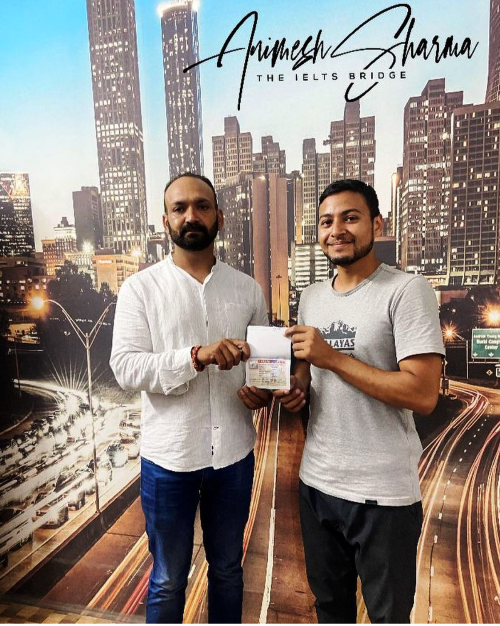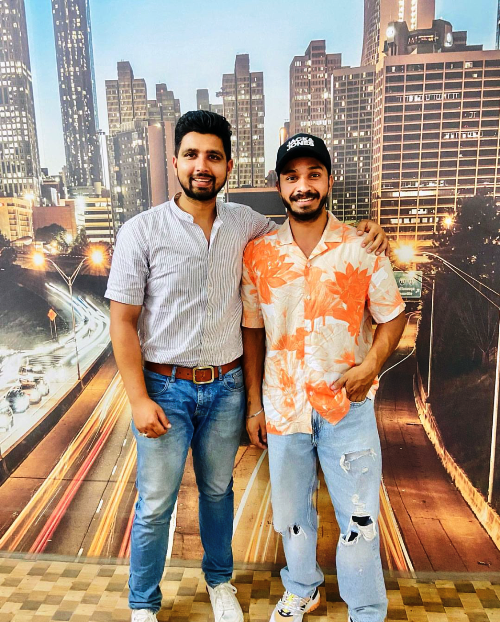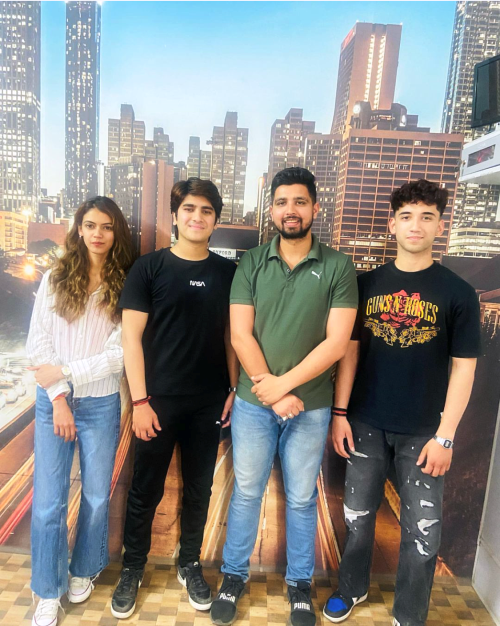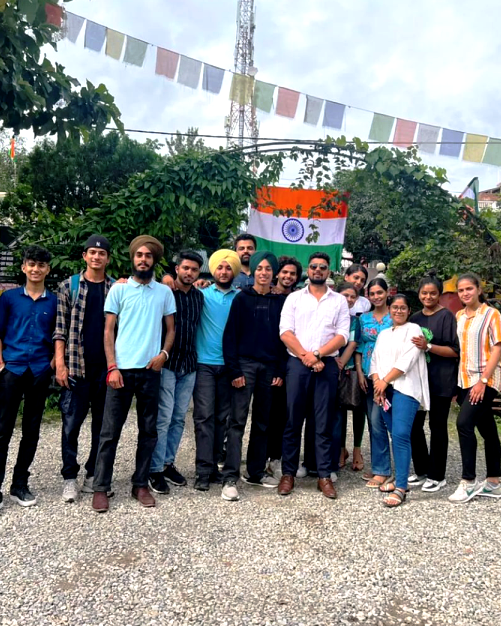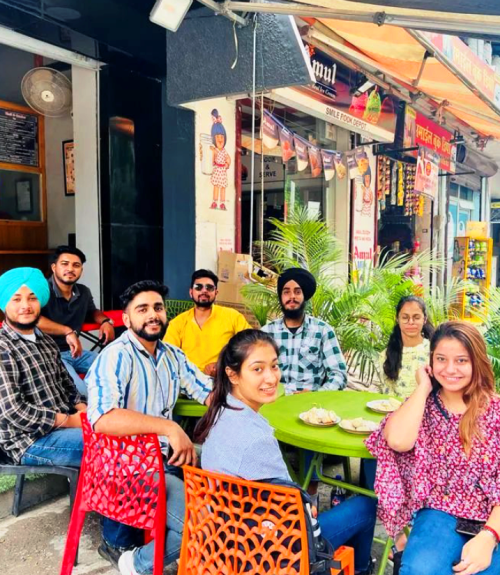Section 1: New cycle path to Marshbrook Country Park
Questions 1-7: Identifying information
[This question asks you to find information from the passage and write the number of the paragraph (A, B, C or D … .. ) in the answer sheet. Now, if the question is given in the very first part of the question set, I’d request you not to answer them. It’s mainly because this question will not follow any sequence, and so it will surely kill your time. Rather, you should answer all the other questions first. And just like List of Headings, only read the first two lines or last two lines of the expected paragraph initially. If you find the answers, you need not read the middle part. If you don’t find answers yet, you can skim the middle part of the paragraph. Keywords will be a useful matter here.]
Question 1: what still needs to be done
Keywords for this question: still, needs to be done,
Paragraph E provides detail about the works that still need to be done. Take a look at these lines, “. . .. work is continuing to improve the signs along it, such as warnings when the path approaches a road. New hedges and trees will also be planted along the stretches of the path, . .. . ..”
Here, work is continuing to improve & will also be means the works that still need to be done.
So, the answer is: E
Question 2: the original suggestion for creating the path
Keywords for this question: original suggestion, creating the path,
In paragraph C, the writer of the text says in lines 2-3, “ . .. . Cycle Atherton proposed the 12-kilometre-long cycle path initially, . . .. .”
Here, proposed the 12-kilometre-long cycle path initially = original suggestion for creating the path,
So, the answer is: C
Question 3: a reason why the path opened early
Keywords for this question: reason, path opened early,
The answer can be found in paragraph B. Read lines 3-4 carefully, “ . .. . The cycle path was completed ahead of schedule – partly thanks to perfect weather for construction – and under budget.”
Here, The cycle path was completed ahead of schedule = reason why the path opened early,
So, the answer is: B
Question 4: people who no longer need to get to the park by car
Keywords for this question: people, no longer need, get to the park, by car,
In section D take a look at lines 3-4, “ . . .. At 2.5 metres wide, it is also suitable for users of wheelchairs, mobility scooters and buggies, who have not previously had access to the park without using motor vehicles.”
Here, suitable for users of wheelchairs, mobility scooters and buggies who have not previously had access to the park without using motor vehicles = people who no longer need to get to the park by car,
So, the answer is: D
Question 5: the route of the path
Keywords for this question: route of the path,
Have a look at the first lines of paragraph A, “A new dual-purpose cycle and pedestrian route has been built from Atherton bus station to the country park’s main entrance at Marshbrook. .. … ..”
Here, from Atherton bus station to the country park’s main entrance at Marshbrook = the route of the path,
So, the answer is: A
Question 6: the length of the path
Keywords for this question: length of the path,
In paragraph C the writer says in lines 2-3, “ .. .. . Cycle Atherton proposed the 12-kilometre-long cycle path initially, .. … .”
Here, 12-kilometre-long = the length of the path,
So, the answer is: C
Question 7: who paid for the path
Keywords for this question: who paid,
In paragraph B, the writer says in the first lines, “Funding for the cycle path has come largely from the country and town councils, while almost a third of it was raised through crowdfunding. .. ..”
Here, Funding = paid for the path,
So, the answer is: B
Study dramatic arts at Thornley
Questions 8-14: TRUE, FALSE, NOT GIVEN
[In this type of question, candidates are asked to find out whether:
The statement in the question agrees with the information in the passage – TRUE
The statement in the question contradicts with the information in the passage – FALSE
If there is no information on this – NOT GIVEN
For this type of question, you can divide each statement into three independent pieces and make your way through with the answer.]
Question 8: The college has introduced new courses since it opened.
Keywords for this question: college, introduced, new courses, since, opened,
In paragraph no. 1 the writer says in lines 2-4, “…. . .. . For fifty years we have been providing top-quality courses for actors, directors, producers, musicians and everyone else who wishes to work professionally in the theatre or related industry. … .. .”
These lines suggest that the age of college is fifty years and it provides courses related to films and dramas. However, whether the college has introduced some new courses since its opening or not is NOT mentioned here.
So, the answer is: NOT GIVEN
Question 9: The college provides training for work in the film industry.
Keywords for this question: college, provides, training for work, film industry,
In lines 4-5 of paragraph no. 1, the writer says, “ . .. .. We also have expertise in preparing students for the specialised requirements of TV, film and radio. . ..”
Here, preparing students for the specialised requirements = training for work, film = the film industry,
So, the answer is: TRUE
Question 10: Students have the chance to work with relevant professionals.
Keywords for this question: students, chance, work with, relevant professionals,
In paragraph no. 2, take a look at these lines, “ . . .. . and we also collaborate with some of the country’s best directors, writers and actors to create challenging, inspiring and exciting projects with our students.”
Here, we also collaborate with . … to create .. … with our students = students of this college have the chance to work with,
the country’s best directors, writers, and actors = relevant professionals,
So, the answer is: TRUE
Question 11: Many more people apply to study at the college than are accepted.
Keywords for this question: many more people, apply to study, than, accepted,
In paragraph no. 3, lines 2-3 say, “ .. . . Every year, we receive two thousand applications for the one hundred places on our degree courses. .. .. .”
Here, two thousand applications for the one hundred places = many more people apply . .. .. than are accepted,
So, the answer is: TRUE
Question 12: Theatre 500 was created by students.
Keywords for this question: Theatre 500, created, by students,
We can find the answer to this question in paragraph no. 4. Here, in lines 1-2, the author of the text says, “To make our fiftieth anniversary this year, we are putting on a production of Theatre 500. Written by two staff members . .. ..”
Here, Written by two staff members = it was created by people who work in the theatre, not by the students,
So the answer is: FALSE
Question 13: The new building and the council building were designed by the same architects.
Keywords for this question: new building, council building, designed by, same architects,
In paragraph no. 5, the writer of the text talks about the new building (Our new premises) and in lines 3-4 the writer says, “ . .. For the last two years, we have been developing designs with Miller Furbank Architects for our new home, .. . ..”
Here, our new home = the new building,
This means Miller Furbank Architects has been designing the new building. However, there is NO INFORMATION about who designed the council building.
So the answer is: NOT GIVEN
Question 14: Local groups will be charged for using college premises.
Keywords for this question: local groups, will be charged for, using college premises,
In the final paragraph, the first lines say, “We have been talking to cultural organisations in the district, and considering how we can bring cost-free benefits to the local community, as well as to our students. .. ..”
Here, considering how we can bring cost-free benefits to the local community = local groups will NOT be charged for using college premises,
So the answer is: FALSE
Section 2:How to make your working day more enjoyable
Questions 15-21: Completing sentences with ONE WORD ONLY
In this type of question, candidates are asked to write a maximum of one word to complete sentences on the given topic. For this type of question, first, skim the passage to find the keywords in the paragraph concerned with the answer, and then scan to find the exact word.
[TIPS: Here scanning technique will come in handy. Target the keywords of the questions to find the answers. Remember to focus on Proper nouns, random Capital letters, numbers, special characters of text etc.]
Question 15: Bringing a personal ________ to work will make the place feel more homely.
Keywords for this question: bringing, personal, will make, place, feel more homely,
In the second paragraph, the author of the text says in lines 2-4, “ . .. . Get some green plants or a family photo for your desk. File all those add bits of paper or throw them away. All of these little touches can make your work environment feel like it’s yours. .. . .”
Here, family = personal, make your work environment feel like it’s yours = will make the place feel more homely,
So, the answer is: photo
Question 16: It is important to check the position of all _______ before use to avoid pulling any muscles.
Keywords for this question: important to check, position, before use, avoid, pulling, any muscles,
Again, in paragraph no. 2, read lines 4-5, “ .. . Make sure any screens you have are at a suitable height so you’re not straining your neck and shoulders.”
Here, Make sure = it is important to check, at a suitable height = check the position, not straining your neck and shoulders = avoid pulling any muscles,
So, the answer is: screens
Question 17: Leaving the office in the middle of the day may help to raise ________ later on.
Keywords for this question: leaving, office, middle of the day, may help, raise, later on,
Take a look at lines 1-3 in paragraph no. 3, “Humans need a change of environment every now and then to improve productivity. Go out at lunchtime for a quick walk. If you have the option, it’s a good idea to work from home occasionally. . . .”
Here, improve = raise, Go out at lunchtime & work from home occasionally = leaving the office in the middle of the day,
So, the answer is: productivity
Question 18: It is advisable to avoid checking a ______ during breaks.
Keywords for this question: advisable, avoid checking, during breaks,
Lines 1-3 of the fourth paragraph say, “Use coffee time to get to know a colleague you don’t usually speak to. There’s no point in getting away from starting at one thing though, only to replace it with another; so leave your mobile alone! . .. .”
Here, coffee time = breaks, leave your mobile alone = it is advisable to avoid checking mobile,
So, the answer is: mobile
Question 19: Getting involved in _______ at work may have negative results.
Keywords for this question: Getting involved in, work, may have, negative results,
The last few lines of paragraph no. 4 say, “.. . .. Another tip is to try and stay out of office gossip. In the long run it could get you in more trouble than you realise.”
Here, could get you in more trouble than you realise = may have negative results,
So, the answer is: gossip
Question 20: Having a few _______ available can help people concentrate better at work.
Keywords for this question: having, few, available, help people, concentrate, better,
The answer can be found in paragraph no. 5. Here, in lines 1-3, the author of the text says, “ .. . . If you can keep some healthy snacks in your desk because if you have something you can nibble on, it will make you work more effectively and you’ll enjoy it more. .. . .”
Here, keep some = having a few, it will make you work more effectively and you’ll enjoy it more = can help people concentrate better at work,
So, the answer is: snacks
How to get promoted
Questions 21-27: Completing notes
[In this type of question, candidates are asked to complete different notes with NO MORE THAN TWO WORDS from the passage. Keywords are important to find answers correctly. Generally, this type of question maintains a sequence. However, we should not be surprised if the sequence is not maintained. Find the keywords in the passage and you are most likely to find the answers.]
Title of the notes: Steps to take to achieve a promotion
Question 21:
First step: examine past successes and any _________ that would help gain promotion
Keywords for this question: First step, examine past successes, would help, gain promotion,
In the second paragraph, the writer of the text says in lines 2-3, “ . .. .. Take an honest look at yourself – your achievements and also your skills, particularly those you could exploit to take on a different role.”
Here, achievements = past successes, those you could exploit to take on a different role = that would help gain promotion,
So, the answer is: skills
Question 22:
Set up a meeting with your boss to talk about:
- how best to use your high level of ________ in future
Keywords for this question: set up, meeting, your boss, talk about, how best to use, high level, in future,
In paragraph no. 3, the writer says in the beginning, “Your boss is the gatekeeper. If you think your boss is likely to be on your side, ask for a meeting to discuss your serious commitment to the organisation and how this could translate into a more defined career plan. .. ..”
Here, ask for a meeting to discuss = Set up a meeting with your boss to talk about, serious = high level of,
So, the answer is: commitment
Question 23:
- or how much extra ________ you already bring to the company
Keywords for this question:how much, extra, already bring, the company,
Again, in paragraph no. 3, the writer says in lines 4-5, “ . .. . start softly with a more deliberate focus on increasing your boss’s understanding of the work you do and the added value you deliver.”
Here, added = extra, you deliver = you already bring to the company,
So, the answer is: value
Question 24:
Focus on the important people in the company:
- find out which ones will be members of the _________ who decide on the promotion
Keywords for this question: focus, important people, find out, which ones, will be, members, who decide on, promotion,
The answer can be found in paragraph no. 4. Here, take a look at lines 1-3, “Think about how you are perceived at work. In order for you to get your promotion, who needs to know about you? Who would be on the interview panel and whose opinion and input would they seek? … …”
Here, Who would be = which ones will be, the interview panel = members of the panel, whose opinion and input would they seek = who decide on the promotion,
So, the answer is: panel
Question 25:
- consider how much they are aware of your _________ for the future
Keywords for this question: consider, how much, aware, your, for the future,
In paragraph no. 4, the writer says again in lines 3-5, “ .. . . And once you’ve got a list of people to impress, ask yourself – do they know enough about you? And I mean really know – what you do day to day at your desk, your contribution to the team, and perhaps most importantly, your potential.”
Here, do they know enough about you? = consider how much they are aware,
So, the answer is: potential
Question 26: Take steps to raise your profile by:
- offering to create a feature for a company publication
- participating in the _________ of events for customers
Keywords for this question: take steps, raise, profile, by, offering, create feature, company publication, participating, events for customers,
The answer can be found in the fifth paragraph. Here, the writer says in lines 2-5, “ . . .. Raising your profile in your organisation is critical so that when those in change start looking at that empty office and considering how best to fill it, the first name that pops into their heads is yours. If your firm has a newsletter, volunteer to write a feature to include in it. If they arrange regular client events, get involved in the organisation of them. And so on.”
Here, client events = events for customers, get involved in = participate in,
So, the answer is: organisation / organization
N.B: Here, the word ‘organisation’ is included in two places; first, in line no. 2 (organisation = company), and then, in line no. 5 (organisation = the action of organizing something). The answer is taken from line no. 5.
Question 27: Work on self-development:
- take any ________ that fill in gaps in knowledge
Keywords for this question: improve, grammar,
In the final paragraph (paragraph no. 6), the writer says in lines 1-3, “If you think your experience needs enhancing, then look at ways you can continue to improve it. If you are confident in your professional expertise but lacks the latest management theory, enrol on some relevant courses that fit around your day job.”
Here, look at ways you can continue to improve = work on self-development, lacks the latest management theory = gaps in knowledge,
So, the answer is: courses
Section 3:Animals can tell right from wrong
Questions 28-34: Summary completion:
[In this kind of question candidates are given a summary for one, two, or three paragraphs with some fill in the blanks questions. Candidates need to find out the related paragraphs by correctly studying the keywords from the questions. Then, they should follow the steps of finding answers to fill in the gaps.]
Title of the summary: Complex social behaviour in wolf packs
Question 28: Wolves live in packs and it is clear that there are a number of _______ concerning their behaviour.
Keywords for this question: wolves, live in packs, clear, a number of, concerning, their behaviour,
The answer can be found in lines 1-2 of paragraph no. 4. Here, the writer says, “Wolves live in tight-knit social groups that are regulated by strict rules. . … ..”
Here, tight-knit social groups = packs,
Here, the phrase in the question ‘a number of’ indicates to ‘something plural’.
So, the answer is: rules
Question 29: Some observers believe they exhibit a sense of ________ . The stronger, more senior wolves seem to adopt the roles of the junior wolves when they are playing together.
Keywords for this question: some observers, believe, exhibit, sense of, stronger, more senior wolves, seem to adopt, roles, junior wolves, when, playing together,
In paragraph no. 4, lines 2-4 say, “ . .. . . Wolves also demonstrate fairness. During play, dominant wolves will appear to exchange roles with lower-ranking wolves. .. .
Here, demonstrate = exhibit, dominant wolves = The stronger, more senior wolves, exchange roles = adopt the roles, lower-ranking wolves = junior wolves,
So, the answer is: fairness
Questions 30 & 31: They act as if they are 30. _________ to the juniors and even permit some gentle 31. ________.
Keywords for this question: they act, as if, to the juniors, even, permit, some gentle,
In paragraph no. 4, lines 5-7 state, “ . .. .. They pretend to be submissive and go so far as to allow biting by the lower-ranking wolves, provided that it is not too hard. .. ..”
Here, They pretend to be = They act as if they are, allow = permit, lower-ranking wolves = juniors, it is not too hard = gentle,
So, the answers are:
- submissive
- biting
Question 32: What is even more surprising is that when one of the juniors gets too forceful, it bends down begging for _______. Only when that has been granted will the wolves continue playing.
Keywords for this question: more surprising, when, one of the juniors, gets too forceful, bends down, begging for,
In lines 10-12 of paragraph no. 4, the author of the text mentions, “ . .. .. Astonishingly, if an animal becomes aggressive, it will perform a ‘play bow’ to ask forgiveness before play resumes.”
Here, Astonishingly = What is even more surprising, when one of the juniors gets too forceful = if an animal becomes aggressive, play bow = bends down, begging for = ask, before play resumes = Only when that has been granted will the wolves continue playing,
So, the answer is: forgiveness
Questions 33-37: Matching places/names from list of descriptions:
[The rules for finding answers to this sort of question are simple. Just find the name of the names/places, read around it carefully and try to match with the given list of descriptions. Then, give a quick look to check whether there is another statement or idea provided by the same person in the text. If there is, check the reference carefully and decide your answer. Remember, the questions will not follow any sequential order. Do the reverse method when the statements are in questions]
Question 33: coyotes
Keywords for this question: coyotes,
In paragraph no.5, lines 2-5 say, “ . . . Among coyotes, cubs which are too aggressive are ignored by the rest of the group and often end up having to leave entirely. . . .”
Here, too aggressive = do not obey the moral code, end up having to leave entirely = may be driven away by their peers,
So, the answer is: E (may be driven away by their peers if they do not obey the moral code.)
Question 34: domestic dogs
Keywords for this question: domestic dogs,
Again, in paragraph no. 5, lines 5-8 say, “ . . . Experiments with domestic dogs, where one animal was given some ‘sweets’ and another wasn’t, have shown that they possess a sense of fairness as they allowed their companion to eat some.”
Here, sweets = treats, they allowed their companion to eat some = share treats with a peer,
So, the answer is: C (sometimes share treats with a peer.)
Question 35: elephants
Keywords for this question: elephants,
The answer can be found in paragraph no. 6, as we find the mention of ‘elephants’ here. In this paragraph, lines 7-12state, “ . .. . In 2003, a herd of 11 elephants rescued antelopes which were being held inside an enclosure in KwaZulu-Natal, South Africa. . .. .”
Here, a herd of 11 elephants = elephants, rescued = help, antelopes = a different type of animal, being held inside an enclosure = in difficulty,
So, the answer is: G (may help a different type of animal which is in difficulty.)
Question 36: Diana monkeys
Keywords for this question: Diana monkeys,
The answer lies in the beginning of paragraph no. 7 as the writer says here, “A laboratory experiment involved training Diana monkeys to insert a token into a slot to obtain food. A male who had become skilled at the task was found to be helping the oldest female, who had not learned how to do it. .. ..”
Here, helping the oldest female = assist a peer, who had not learned how to do it = failing to complete a task,
So, the answer is: D (may assist a peer who is failing to complete a task.)
Question 37: rats
Keywords for this question: rats,
The answer lies in paragraph no. 9, as the writer explains in the beginning, “Experiments with rats have shown that they will not take food if they know their actions will cause pain to another rat. .. . .”
Here, they will not take food = unwilling to benefit from something, cause pain to another rat = hurts their peers,
So, the answer is: F (seem unwilling to benefit from something that hurts their peers.)
Questions 38-40: Multiple choice questions
[This type of question asks you to choose a suitable answer from the options using the knowledge you gained from the passage. Generally, this question is set found as the last question set in most passages so you should not worry much about it. Finding all the answers to previous questions gives you a good idea about these questions.]
Question 38: What view is expressed by Professor de Waal?
Keywords for this question: view, professor de Waal,
The answer is found in lines 12-15 of paragraph no. 3, “Professor Frans de Waal, who examines . .. . . . . . . .. .. . . .. . . Human morality was not formed from scratch, but grew out of our primate psychology. Primate psychology has ancient roots, and I agree that other animals show many of the same tendencies and have an intense sociality.”
Here, Human morality = human moral beliefs, grew out = developed, Primate psychology has ancient roots = animal ancestors,
So, the answer is: C (Some human moral beliefs developed from our animal ancestors.)
Question 39: Why does Professor Bekoff mention the experiment on Diana monkeys?
Keywords for this question: why, Professor Bekoff, mention, experiment on Diana monkeys,
The mention of Diana monkeys is found in paragraph no. 7. Here, lines 8-11 say, “ .. . . As there was no benefit for the male monkey, Professor Bekoff argues that this is a clear example of an animal’s actions being driven by some internal moral compass.”
Here, that this is a clear example of an animal’s actions being driven by some internal moral compass indicates that animals’ actions is influenced by moral range that resides inside them (a point that the professor wants to make).
So, the answer is: D (It illustrates a point he wants to make about monkeys and other creatures.)
Question 40: What does the writer find most surprising about chimpanzees?
Keywords for this question: find, most surprising, chimpanzees,
In paragraph no. 8, the writer mentions in lines 5-12, “ . . .. A chimpanzee known as Knuckles is the only known captive chimpanzee to suffer from cerebral palsy, which leaves him physically and mentally impaired. What is extraordinary is that scientists have observed other chimpanzees interacting with him differently and he is rarely subjected to intimidating displays of aggression from older males. . .. ..”
Here, What is extraordinary = most surprising, chimpanzee to suffer from cerebral palsy = disabled peers, he is rarely subjected to intimidating displays of aggression from older males = treat disabled peers with consideration,
So, the answer is: B (They appear to treat disabled peers with consideration.)




